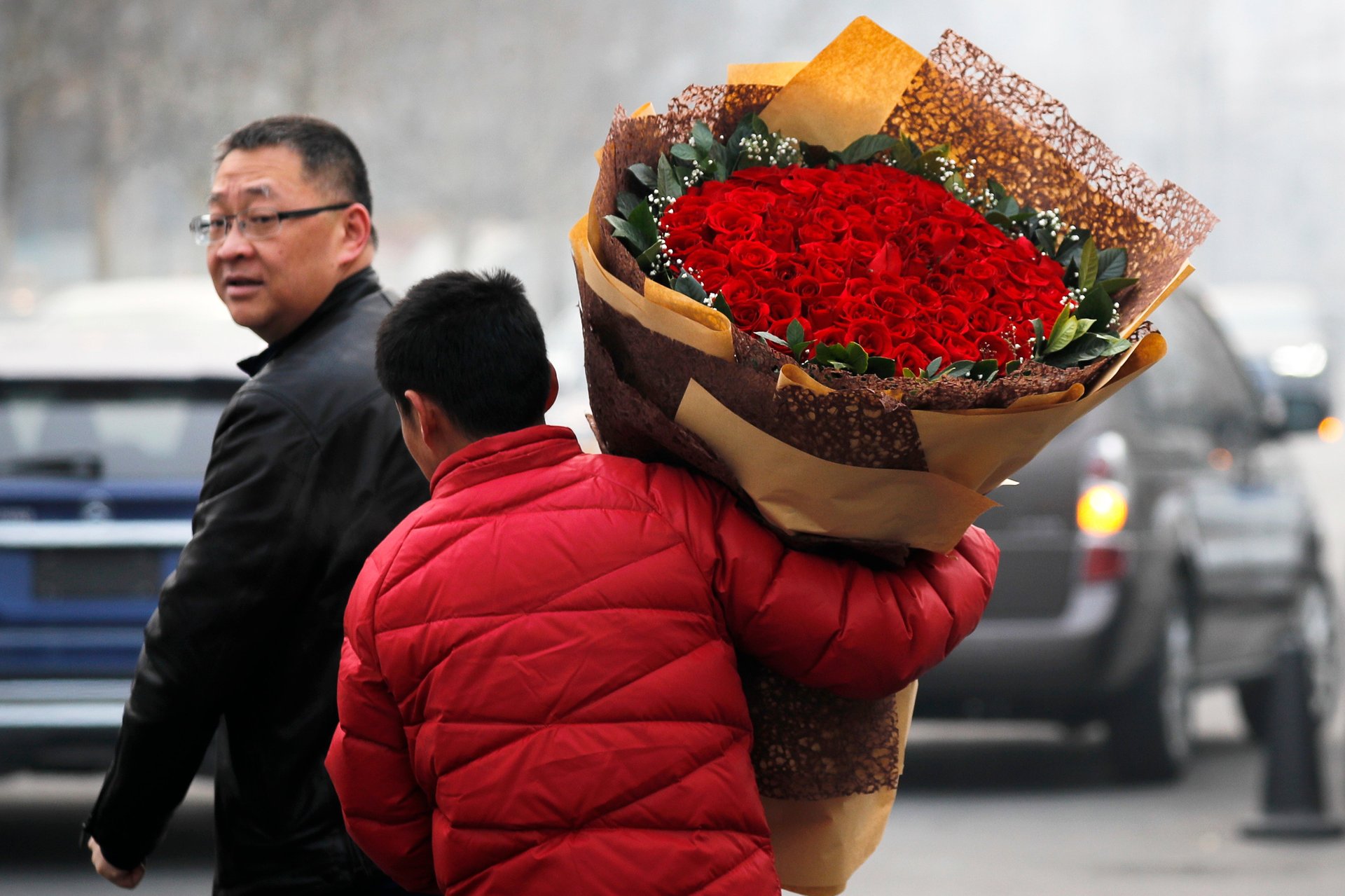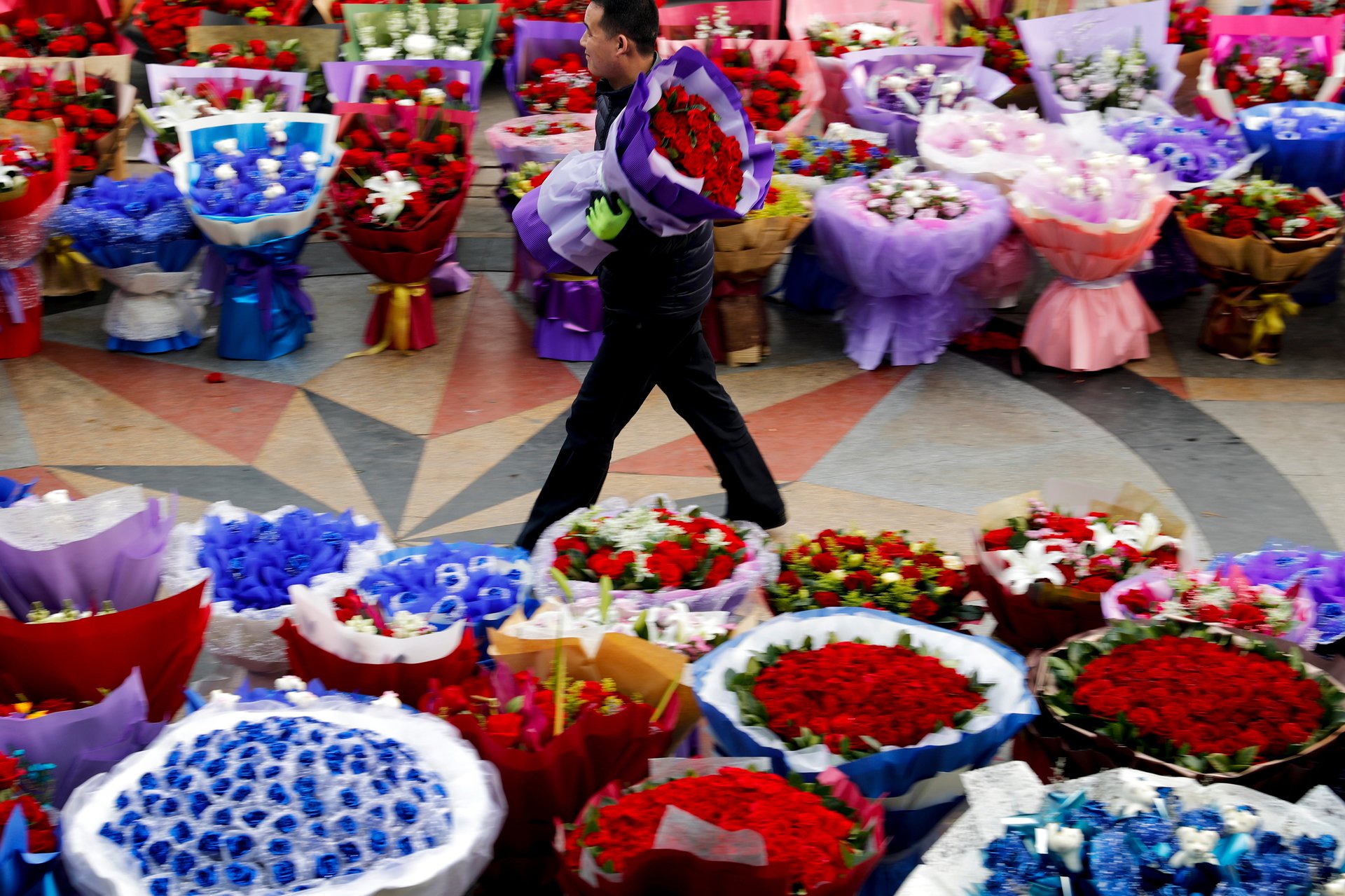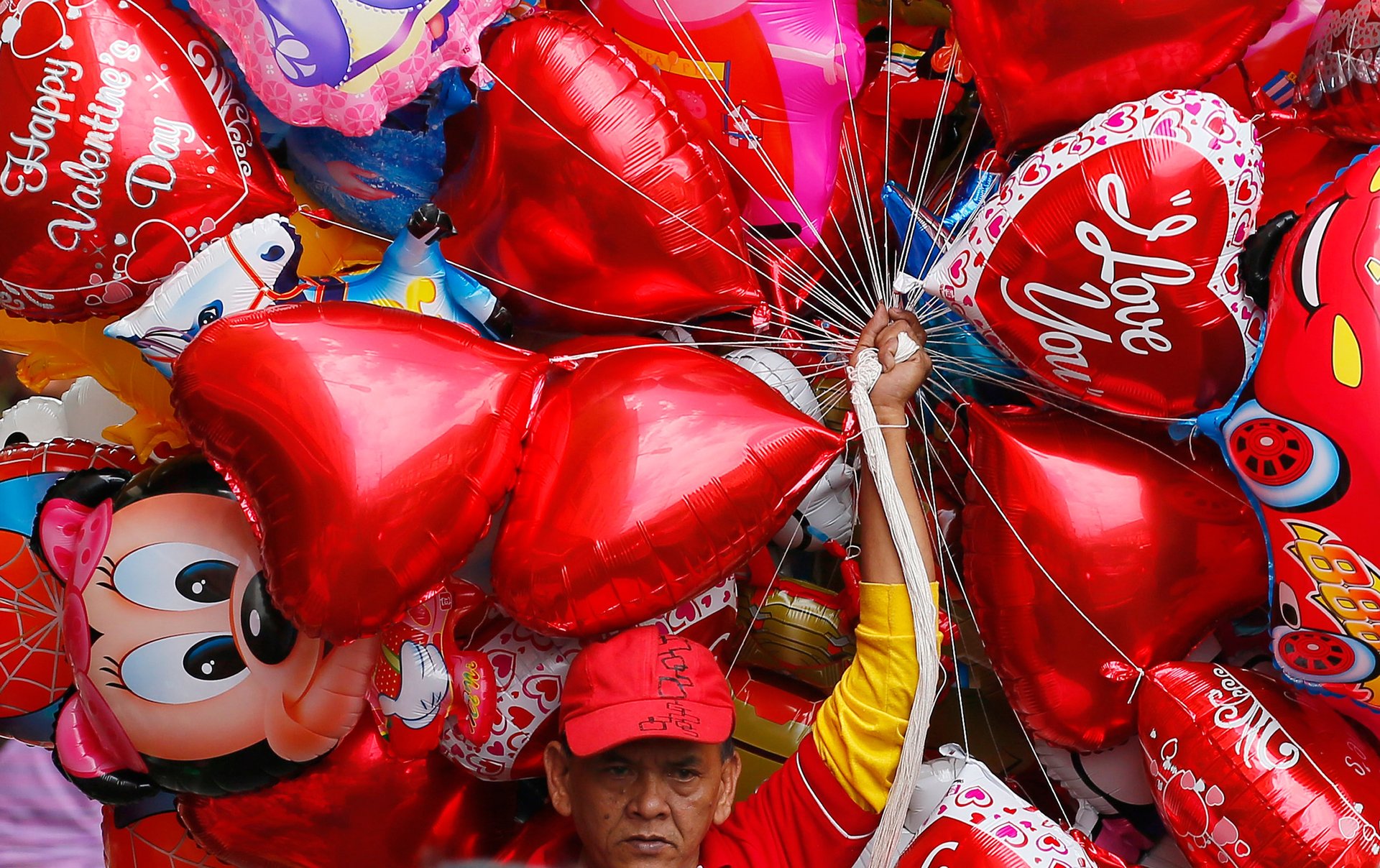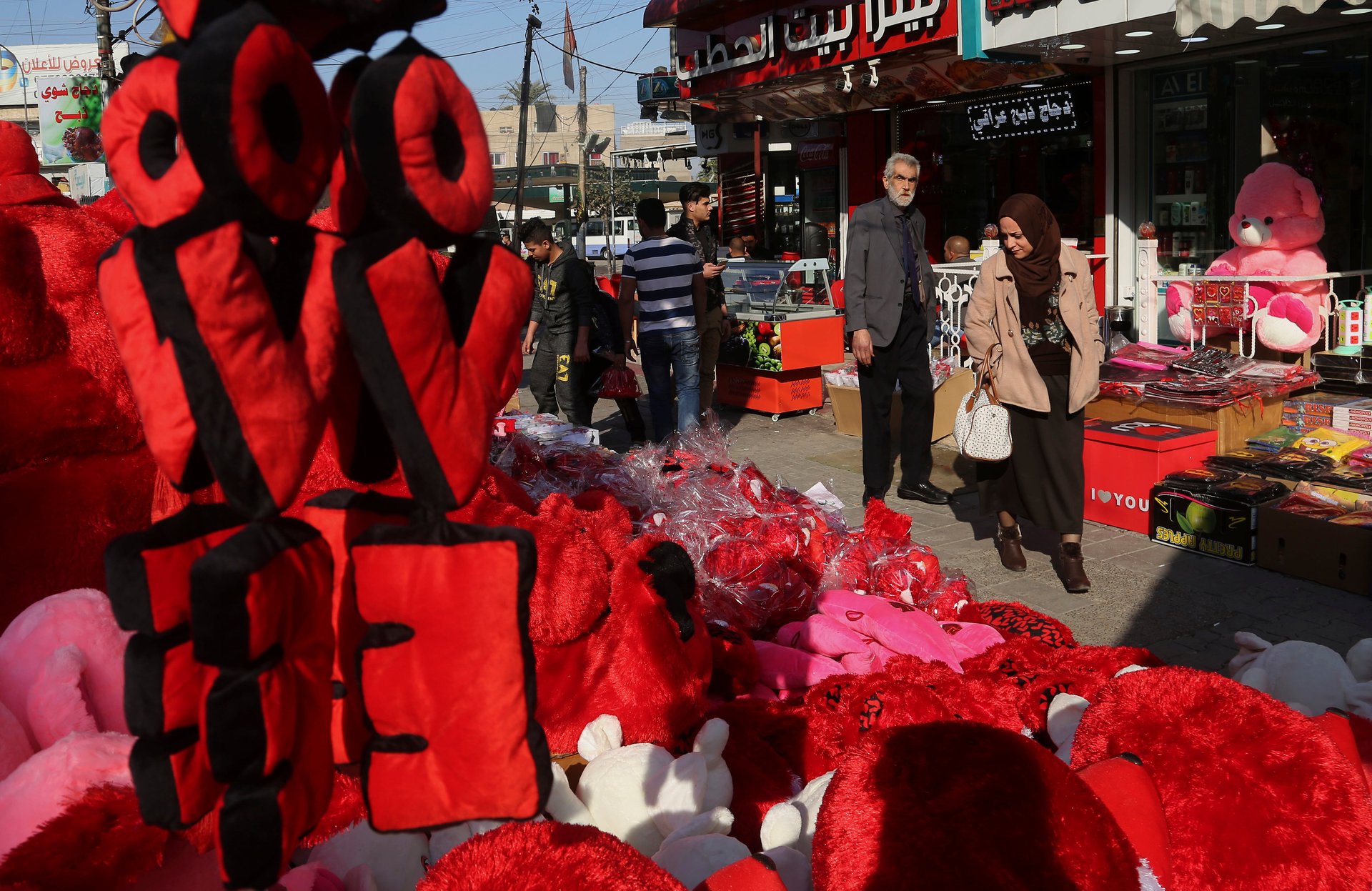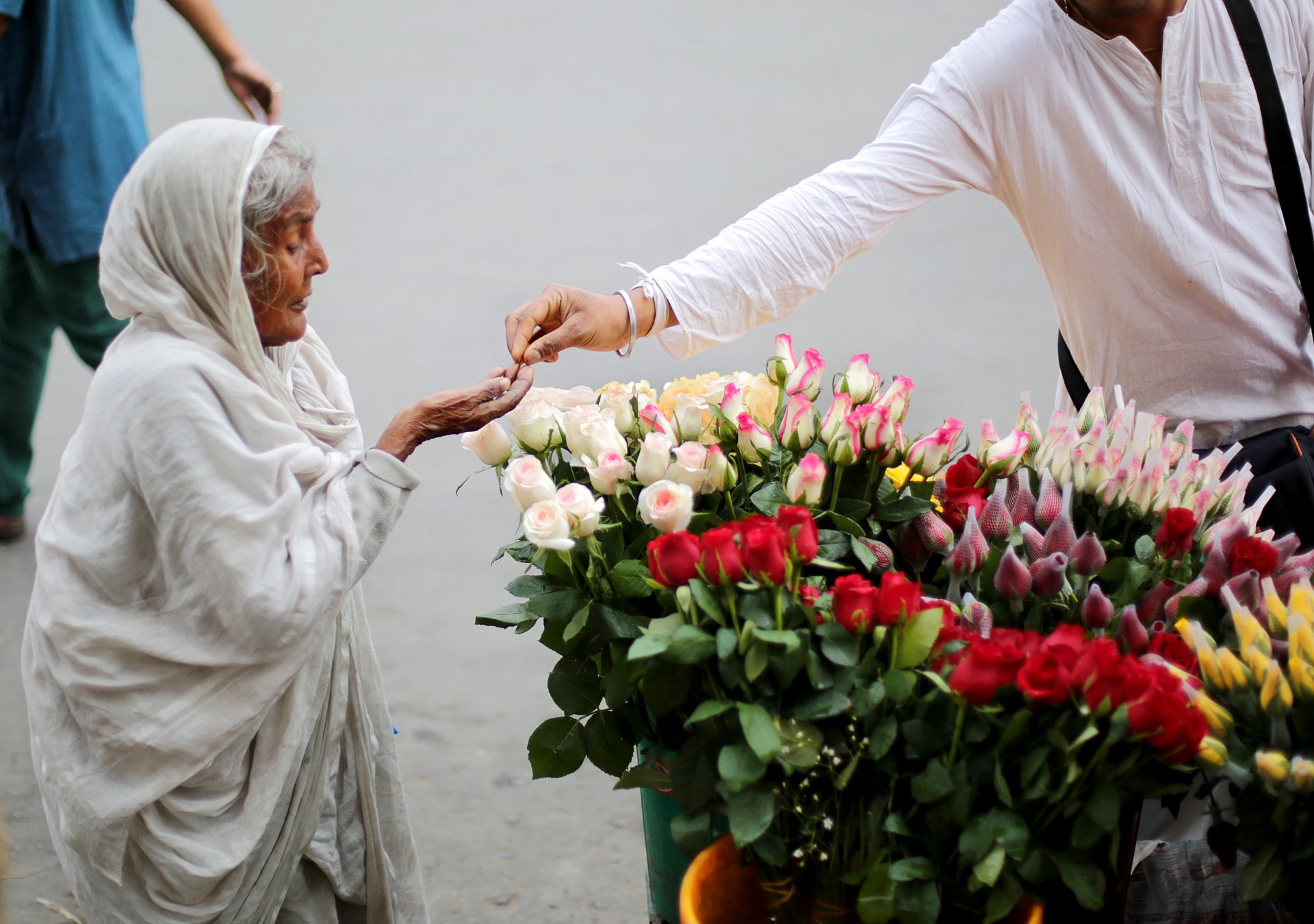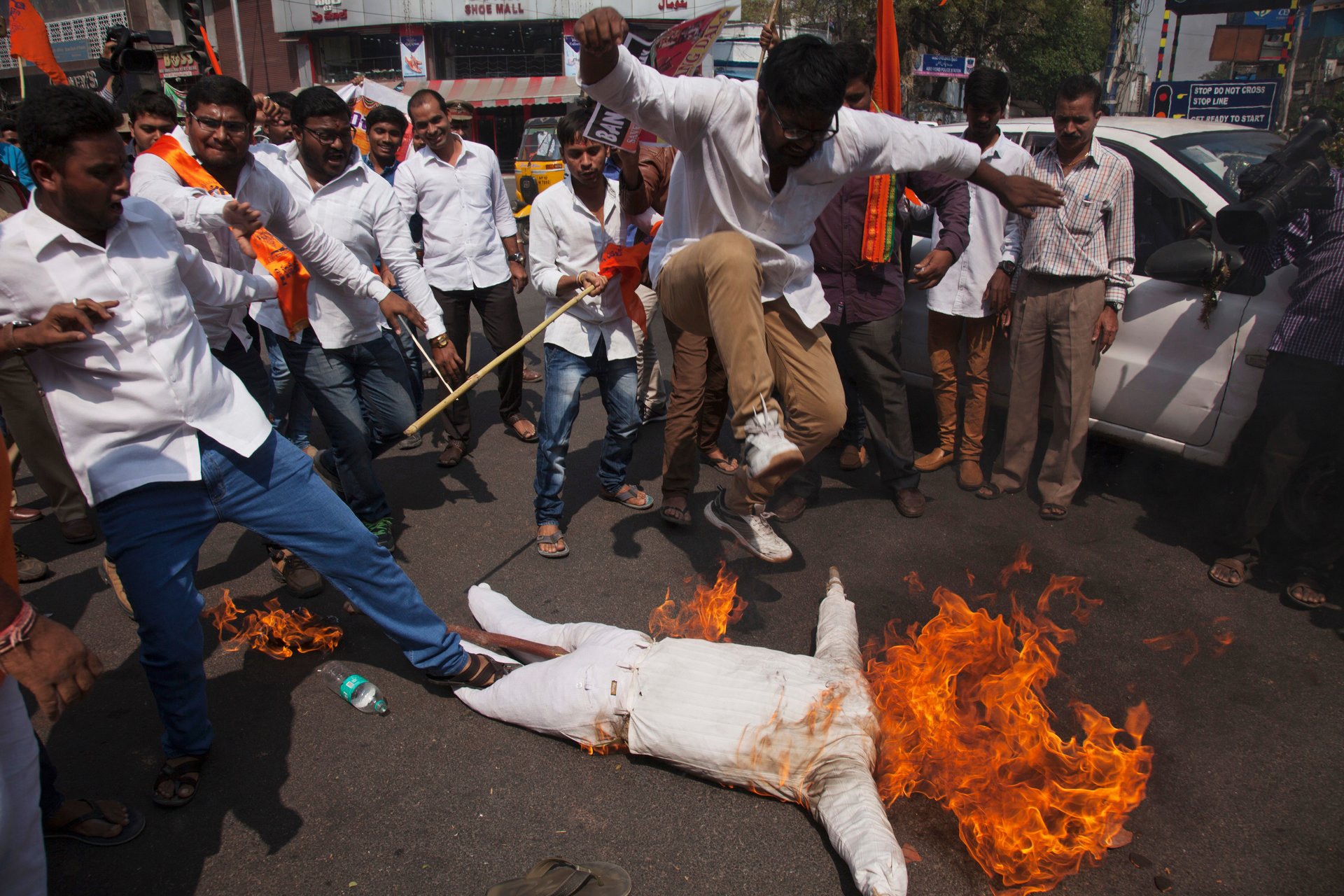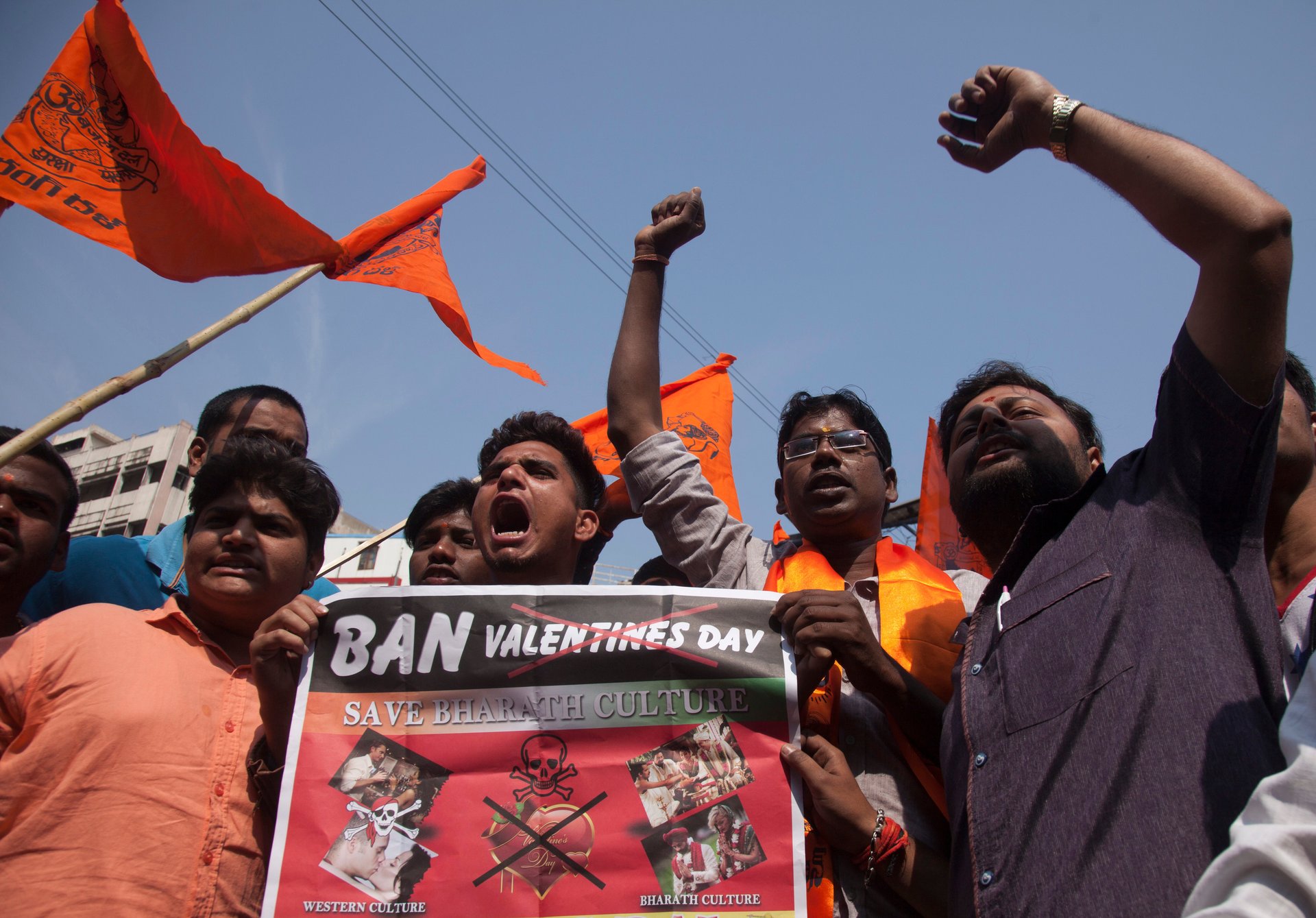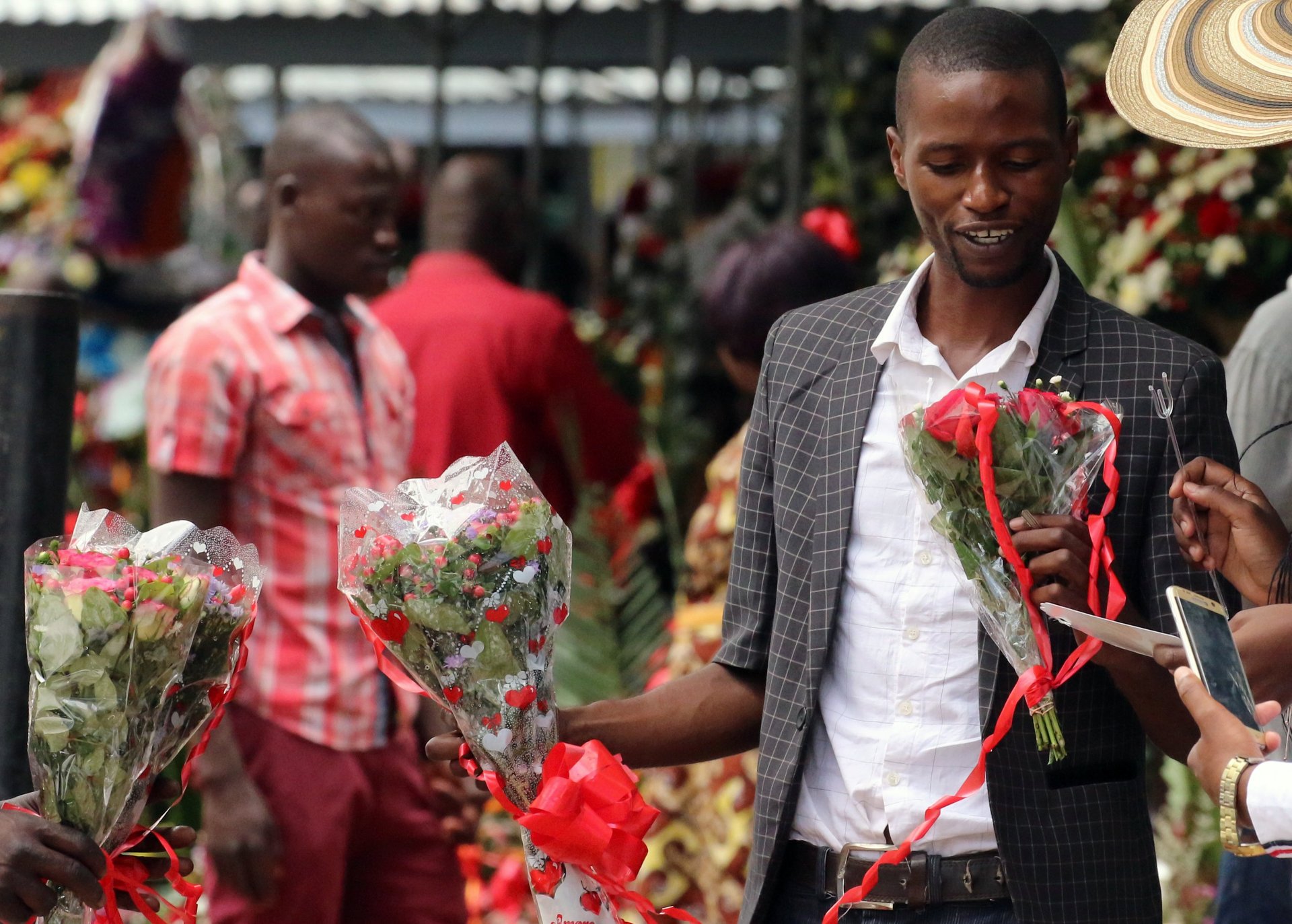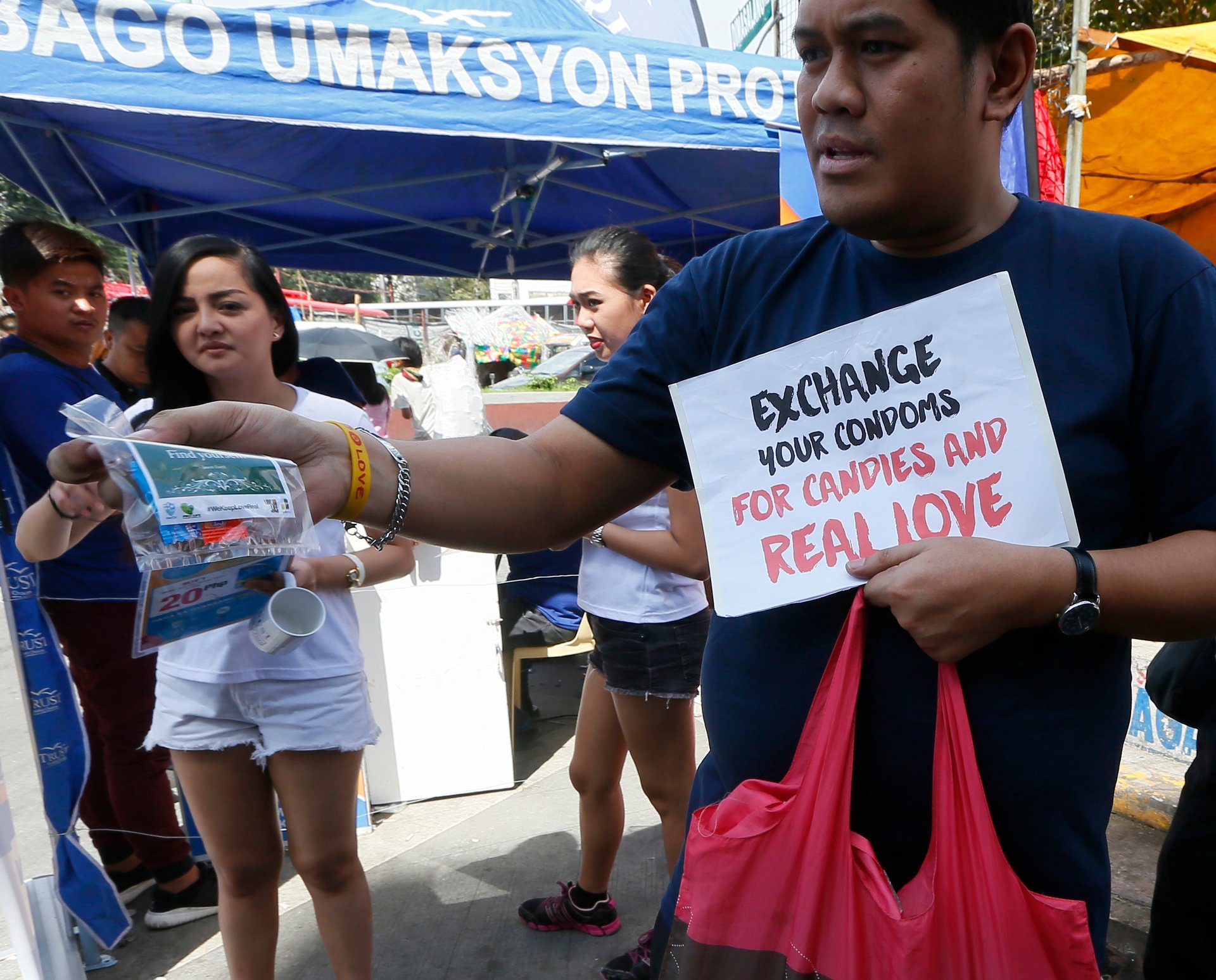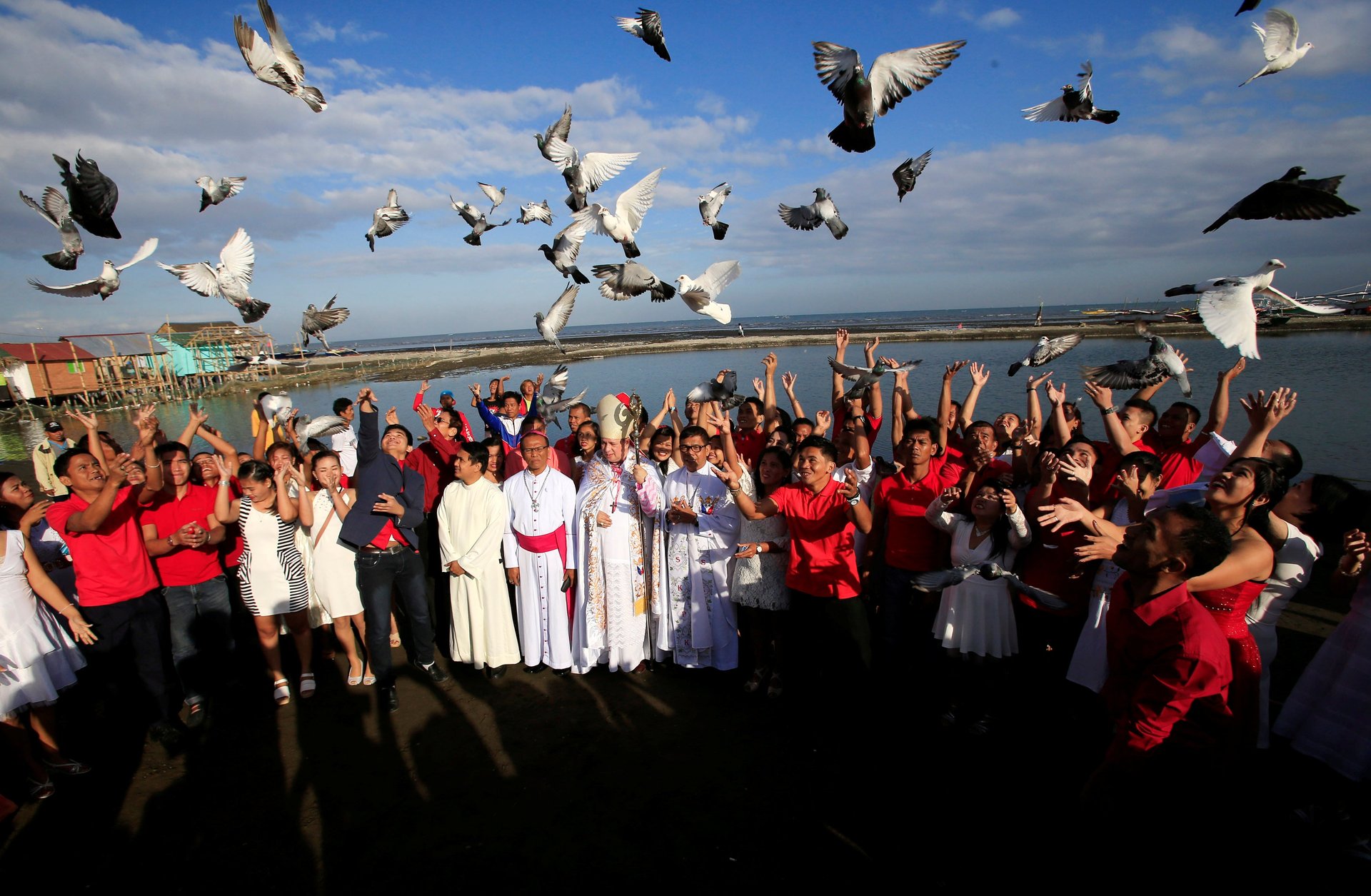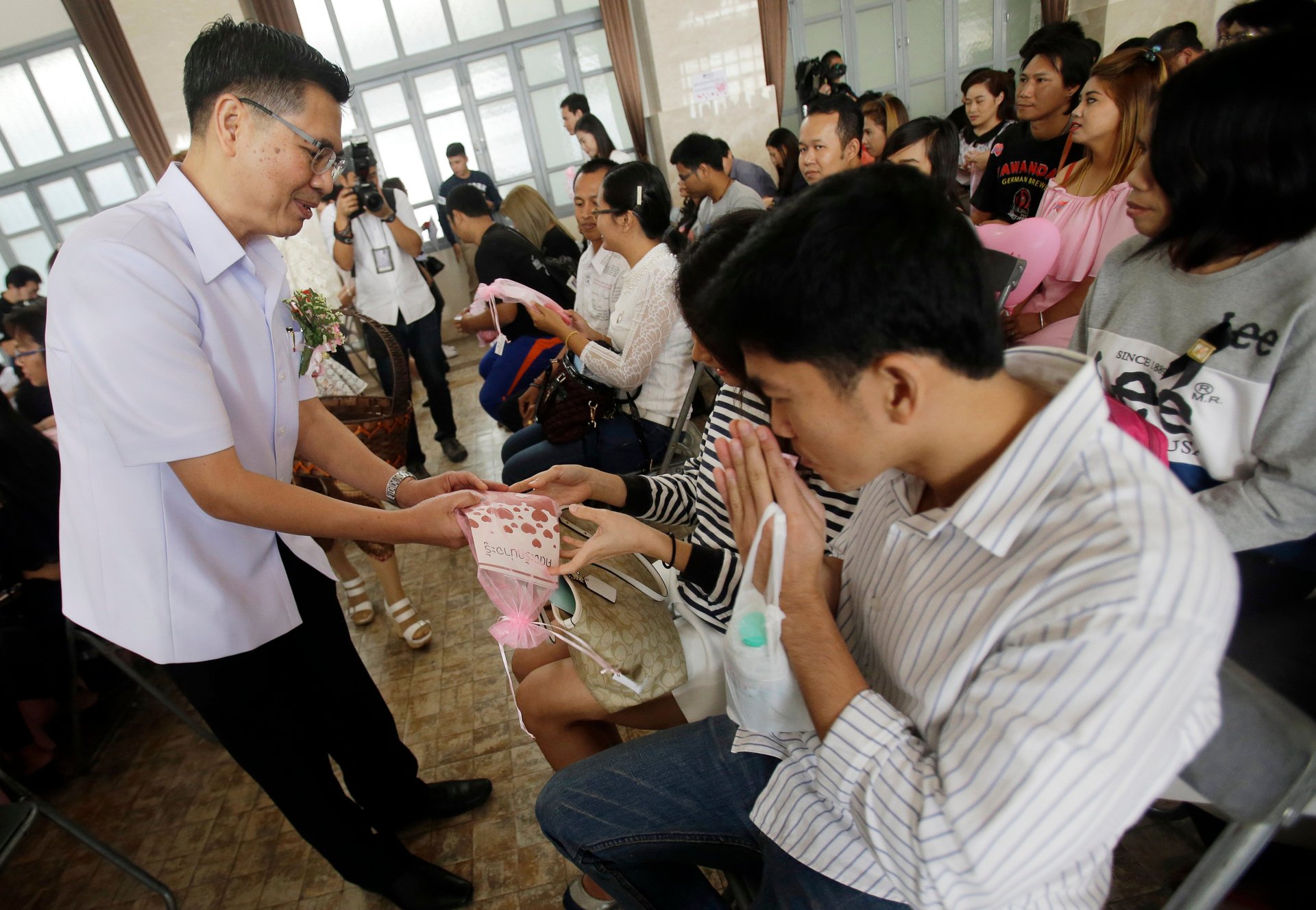Valentine’s Day around the world, in photos
It’s that day of the year again, when people around the world are told it’s time to show their love. In some countries, Valentine’s Day typically means bouquets, balloons, and emotional public displays. For others, it can provoke calls for greater modesty.
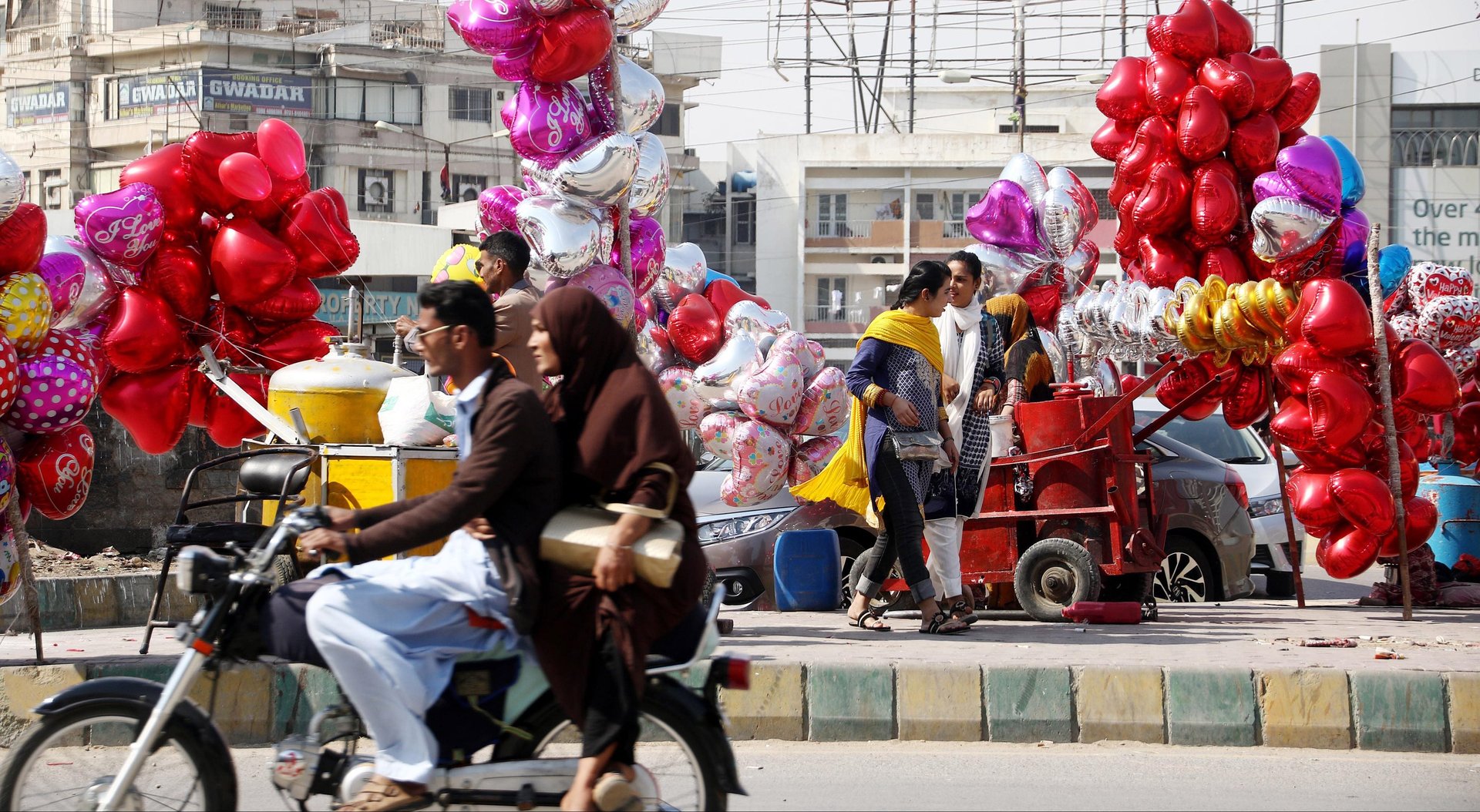

It’s that day of the year again, when people around the world are told it’s time to show their love. In some countries, Valentine’s Day typically means bouquets, balloons, and emotional public displays. For others, it can provoke calls for greater modesty.
In China, Valentine’s Day celebrants are shopping for huge rose bouquets. In Iraq, stuffed toys are on sale. In India, protestors have called for a stop to the day’s festivities. In Pakistan, a court ruled to ban Valentine’s Day celebrations altogether. And in Thailand, couples at the altar received gifts of prenatal folic acid from their government, to promote the country’s birth rate.
